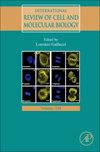前列腺癌的趋化信号通路:对肿瘤微环境的影响以及潜在的治疗靶点。
3区 生物学
Q1 Biochemistry, Genetics and Molecular Biology
International review of cell and molecular biology
Pub Date : 2024-05-06
DOI:10.1016/bs.ircmb.2024.03.008
引用次数: 0
摘要
前列腺癌(PCa)是全球关注的重大健康问题,是男性癌症死亡的主要原因之一。虽然目前有多种治疗局部 PCa 的方法,但转移性耐阉割 PCa(mCRPC)仍无法治愈。尽管mCRPC的治疗取得了进展,但对总生存期的影响有限。本章探讨了肿瘤的形成过程,回顾了我们目前对 PCa 进展为 mCRPC 的理解,并讨论了在这些肿瘤中增强抗肿瘤免疫反应所面临的挑战。本章特别讨论了趋化信号如何影响肿瘤微环境及其在免疫逃避和癌症进展中的作用。本章进一步探讨了直接或间接靶向这些通路作为 mCRPC 辅助疗法的原理,重点介绍了目前正在进行的最新临床前和临床研究。讨论强调了靶向特定趋化因子和趋化因子受体作为PCa和mCRPC主流疗法的联合疗法的潜力,以最大限度地提高这种致命疾病的长期生存率。本文章由计算机程序翻译,如有差异,请以英文原文为准。
Chemotactic signaling pathways in prostate cancer: Implications in the tumor microenvironment and as potential therapeutic targets.
Prostate cancer (PCa) stands as a significant global health concern, ranking among the leading causes of cancer deaths in men. While there are several treatment modalities for localized PCa, metastatic castration-resistant PCa (mCRPC) remains incurable. Despite therapeutic advancements showing promise in mCRPC, their impact on overall survival has been limited. This chapter explores the process by which tumors form, reviews our current understanding of PCa progression to mCRPC, and addresses the challenges of boosting anti-tumor immune responses in these tumors. It specifically discusses how chemotactic signaling affects the tumor microenvironment and its role in immune evasion and cancer progression. The chapter further examines the rationale of directly or indirectly targeting these pathways as adjuvant therapies for mCRPC, highlighting recent pre-clinical and clinical studies currently underway. The discussion emphasizes the potential of targeting specific chemokines and chemokine receptors as combination therapies with mainstream treatments for PCa and mCRPC to maximize long-term survival for this deadly disease.
求助全文
通过发布文献求助,成功后即可免费获取论文全文。
去求助
来源期刊

International review of cell and molecular biology
BIOCHEMISTRY & MOLECULAR BIOLOGY-CELL BIOLOGY
CiteScore
7.70
自引率
0.00%
发文量
67
审稿时长
>12 weeks
期刊介绍:
International Review of Cell and Molecular Biology presents current advances and comprehensive reviews in cell biology-both plant and animal. Articles address structure and control of gene expression, nucleocytoplasmic interactions, control of cell development and differentiation, and cell transformation and growth. Authored by some of the foremost scientists in the field, each volume provides up-to-date information and directions for future research.
 求助内容:
求助内容: 应助结果提醒方式:
应助结果提醒方式:


